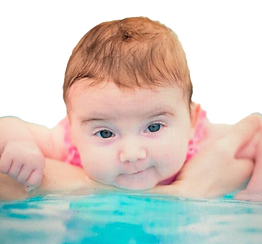

Birthlight,
STA swim school
Est. 2008



September term
If you wish your child to start September 2025 please put name down before July 2025 as we sort this out before summer holidays.
New Classes Starting September on a Sunday in Wickford please email for a Space
Start dates
Sunday Wickford 7th September
(Is to be confirmed length of course and cost)
Wednesday Chelmsford 10th September
Thursday Chelmsford 11th September
Friday Chelmsford 12th September
Chelmsford is 7 week course cost is £66.50



Benefits of swimming
Swimming can offer a good grounding in water safety skills, confidence, self esteem and saves lives for both parents and babies to use whilst swimming. We teach at each babies individual pace by using the five senses of taste, hearing, sight, touch and smell as well as their early reflex actions. Early swimming provides a unique opportunity for parent and baby to bond in the water. This can be achieved in the first few months of being in the water, we help parent and babt to have fun safely, while giving them new ideas to feel comfortable and safe in the water together and inspire new skills and confidence. Your babies swimming skills can then develop and progress as they grow from baby to toddler to child.
Benefits include:
-
Strengthening the body and stimulating the senses.
-
Learning to balance and control movement.
-
Learning to harmonise in the water.
-
Helps progress from reflex movements into voluntary movements.
-
Develop communication and trust between parent and child.
-
Giving each baby a chance to express themselves.
-
Helps to develop social skills.
-
Builds on child's self esteem.
-
Teaches breath control, submersion and floating in the water.
-
Teaches potentially life saving skills.
-
Baby swimming offers a unique Bonding experience.
-
Gives baby the ability to stretch and move their bodies in ways that are impossible to them on dry land.
-
Confidence building.
-
Social skills, being with other babies.
-
Sensory - Each class will stimulate all of the babies senses.
-
Studies which suggest that baby swimmers may benefit neurologically.
-
Giving you the confidence to take your baby swimming whilst on holiday of for family fun.
-
Teaches babies to be patient, wait and how to safely enter a pool.
Submersion Why? ( see Submersion the science behind it)
-
Babies who are used to and happy to be underwater, will be more confident to take those first unaided strokes sooner.
-
Holding their breath is second nature and can be extended through gradual and caring practice.
-
By having submersions as a normal part of water fun, it is not a big deal to them.
-
Enables them to remain calm, even if they were to ever accidentally submerge.
Submersion How?
-
Babies have several new-born reflexes that protect them under water.
-
With help of natural instincts.
-
Being calm and gentle in the water.
-
Having fun with it.
-
Making it a normal part of swimming, not a big event.
-
Using Birthlight techniques, ensuring a holistic and natural approach.
Water time together is very important to us, please continue Reading!
Water Time Together
Jan and Michelle have thought long and hard about the best way of teaching our pre-school age children. A number of swim schools are adopting allowing them to swim without a parent/adult in the pool with them. Whilst this is an accomplishment and makes the parents very proud, we have a slightly different approach. We feel and believe that adult interaction in the pool until school age is of great value to the child.
We like to keep the parents with the child in the pool for serveral reasons:
-
To have parents in the water creates an enriched environment of security and safety allowing the childs confidence to flourish.
-
One to one with parents provides constant attention and practice throughout the lesson.
-
Swimming at this age is about having fun, with parents in the pool with them , they are still able to enjoy songs and other game activities, regardless of what their swimming ability may be.
-
The parents can breakdown the information to the right level for each child's needs, as each child is an individual when understanding instructions.
-
They can still have very big peeks and troughs in their confidence - for far too many different reasons to try to list (mostly not swimming related)
-
The child gets the most rewarding praise and encouragement from their own parent in the moment of achievement.
-
They get more actual swim time, as certain activities can be done as a whole group, rather than waiting, holding on to the rail or side, whilst each class member does each activity before the next can start.
-
Bonding with parents in the water brings happiness and laughter.
-
By being involved together in the lessons, the parent is learning too and can transfer the break down of skills to family swim time.
-
Learning to swim should always be a positive experience which will lead on to fun filled experiences in and around water through life.

